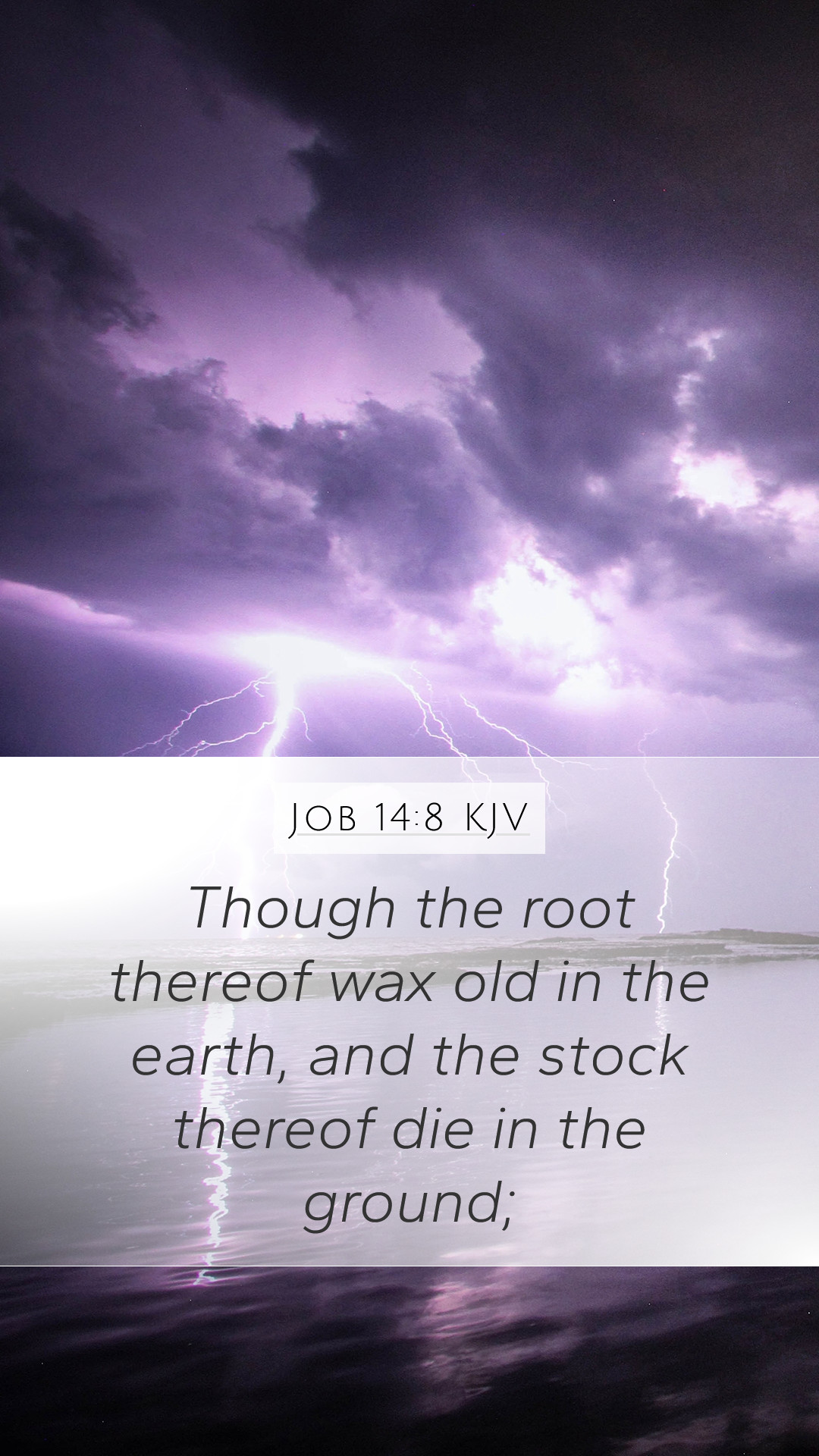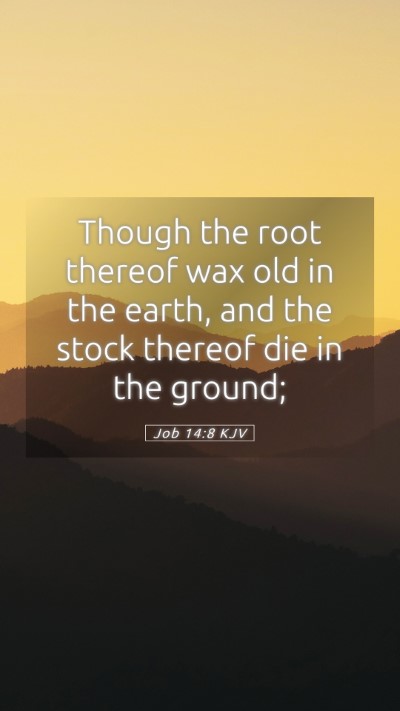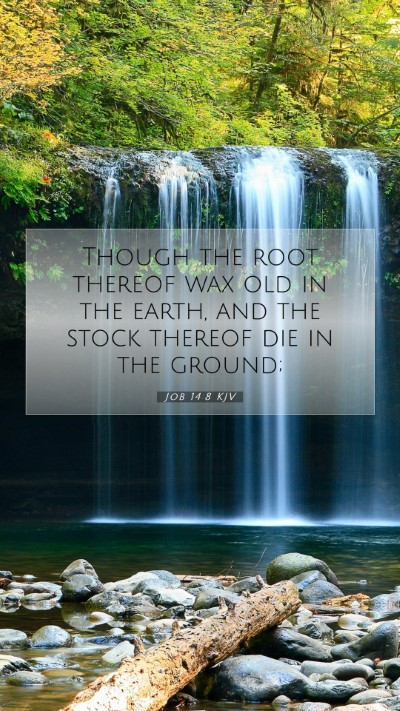Old Testament
Genesis Exodus Leviticus Numbers Deuteronomy Joshua Judges Ruth 1 Samuel 2 Samuel 1 Kings 2 Kings 1 Chronicles 2 Chronicles Ezra Nehemiah Esther Job Psalms Proverbs Ecclesiastes Song of Solomon Isaiah Jeremiah Lamentations Ezekiel Daniel Hosea Joel Amos Obadiah Jonah Micah Nahum Habakkuk Zephaniah Haggai Zechariah MalachiJob 14:8 Meaning
What is the meaning of Job 14:8?
Though the root thereof wax old in the earth, and the stock thereof die in the ground;
Job 14:8 Bible Verse Meaning
Understanding Job 14:8
Bible Verse: Job 14:8 - "Though its root may grow old in the earth, and its stump may die in the ground,"
Overview of the Verse
This verse reflects Job's grappling with the themes of life, death, and the possibility of renewal. It signifies a moment of despair but also the underlying hope present in the imagery of a tree's root and stump.
Summary of Interpretations
Believers and scholars have sought to provide insights into this profound verse, providing a rich tapestry of meanings and interpretations.
Insights from Matthew Henry
- Endurance of Life: Henry emphasizes that despite the external appearance of death or decay, there lies a potential for regrowth and renewal.
- Hope amidst Despair: The commentary highlights that Job, acknowledging his suffering, still sees a glimpse of hope, which is reflective of the larger human condition.
Insights from Albert Barnes
- Metaphor of the Tree: Barnes discusses the metaphor of the tree, which, although it appears lifeless, may still harbor life deep within.
- Spiritual Resurrection: This represents the idea of spiritual resurrection and eternal life, paralleling the Christian hope in resurrection through Christ.
Insights from Adam Clarke
- Symbolism of Stumps: Clarke interprets the stump not as an end, but as a significant point where new growth can potentially arise, symbolizing hope for humanity.
- Comparison to Humanity: He compares the state of the tree to the state of man, who may come to an end but can also look forward to the promise of renewal.
Thematic Analysis
The verse encapsulates several key themes that resonate throughout Scripture:
- Death and New Life: The idea that all things may appear to die, but there is a possibility for new life. This theme is echoed in Romans 8:11, which speaks to the spirit giving life to mortal bodies.
- Human Suffering: Job’s context is steeped in suffering and the quest for understanding God’s ways during times of despair.
- Divine Hope: The hope for resurrection that underpins many biblical narratives, suggesting that what appears to be the end may simply be a transformation.
Cross References
Related verses that further illuminate this passage include:
- Isaiah 61:3 - "to provide for those who grieve in Zion...
- Ezekiel 37:5 - "This is what the Sovereign Lord says to these bones: I will make breath enter you, and you will come to life."
- John 12:24 - "Very truly I tell you, unless a kernel of wheat falls to the ground and dies, it remains only a single seed. But if it dies, it produces many seeds."
Application for Daily Life
Job 14:8 prompts readers to reflect on the nature of their own lives and the cycles of struggle and renewal.
- Finding Hope: Just as the root of a tree persists underground, believers can seek hope in God's promises even in their darkest moments.
- Understanding Change: Embrace the changes in life as opportunities for growth rather than as endings.
- Belief in Resurrection: The assurance of life after death inspires faith and confidence in God’s ultimate authority over life.
Conclusion
In summary, Job 14:8 serves as a poignant reminder that even in the grips of despair, there exists potential for renewal and hope. Through careful study, reflection, and community discussion, individuals can derive deep and empowering meanings from this verse for personal faith journeys.
For those engaging in Bible study groups or exploring online Bible study platforms, this verse serves as a cornerstone for discussing significant themes of life, death, and rebirth. It encourages participants to delve deeper into Scripture analysis and biblical exegesis, enriching their understanding of God's word.


